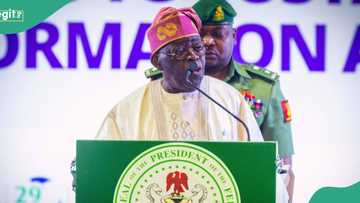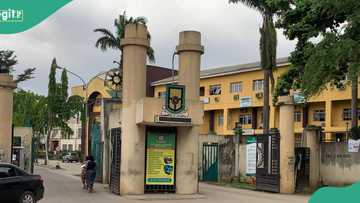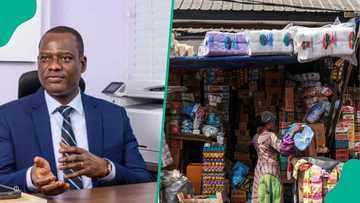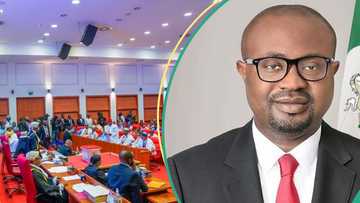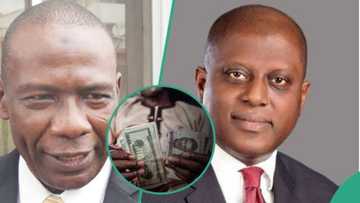N-Power: "This is Regretted", Famed Nigerian Govt’s Scheme Hampered by Mismanagement
Legit.ng journalist Ridwan Adeola Yusuf has over 4 years of experience covering public journalism.
FCT, Abuja - Projected as Africa's largest post-graduate job programme, the now-suspended N-Power scheme was impacted by mismanagement by successive handlers, thus stalling the pursuit of national empowerment sustainability.
Created in 2016 by the ruling All Progressives Congress (APC) administration, the N-Power programme has no doubt put smiles on the faces of several Nigerians.
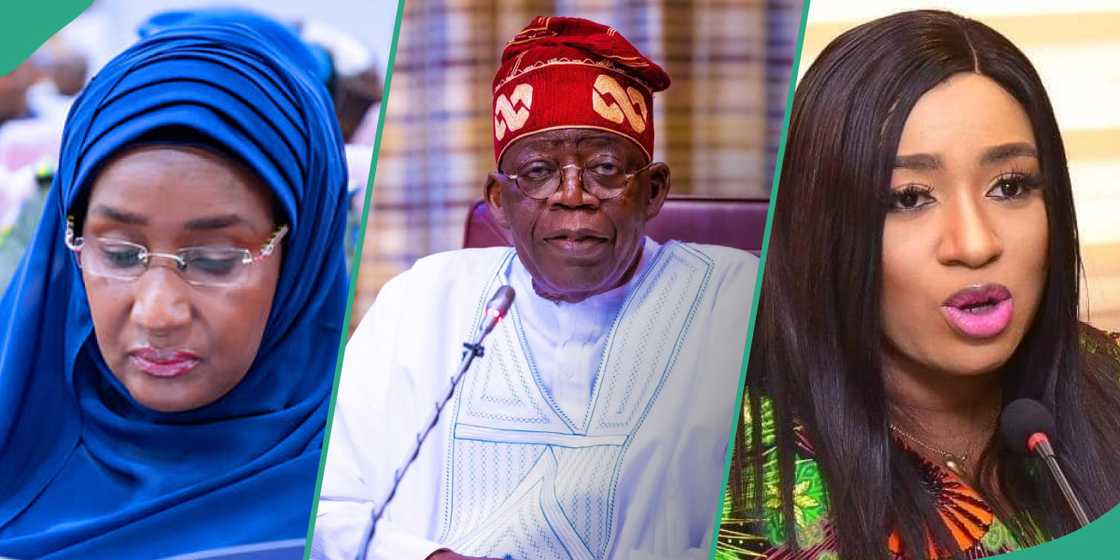
Source: Facebook
Individuals between the ages of 18 and 35 were drafted to the graduate segment of the programme and posted to places of primary assignments (PPAs) in schools, medical facilities, and agricultural centres across the country. These beneficiaries (also called volunteers) were paid N30,000 (about $21 at the interbank rate) as monthly stipends and some of them received tablet computers.
In total, 960,000 people — comprising batches A, B, and C — have benefitted from the programme.
Despite a few positives, the programme was marred by a lack of adequate coordination, weak monitoring/implementation of ideas, and shadiness.
Legit.ng takes a deep dive into the complexities surrounding the famed scheme.
Earlier confusion over N-Power beneficiaries' tenure
Although the N-Power programme was originally designed to last two years, during the electioneering for the 2019 presidential poll, Afolabi Imoukhuede, a key official of the national social investment programmes (NSIPs) at the time, assured beneficiaries of permanent engagement if they ensured the successful reelection of his principal, Muhammadu Buhari.
Imoukhuede had said:
"Your (beneficiaries’) quest for permanence is directly tied to the continuity of Mr. President in office. So, I wanna (sic) turn the table to you.
"So, you can be sure that in his continuity, your quest for permanence would also be taken care of.”
Meanwhile, Buhari secured a second term in office and the pioneer beneficiaries — who had pinned their hope on the government — were told they would be disengaged.
The change of tune by the then-government official on March 4, 2020, left several N-Power beneficiaries disappointed.
Govt’s failure on distribution of N-Power device
At the time of its inception in 2016, all N-Power batches A and B beneficiaries were afforded the opportunity to select and own electronic devices to boost their knowledge.
Indeed, many (not all) batch A beneficiaries got their selected device. However, not a single person in the two other batches received the tablet. The supervising agency, the ministry of humanitarian affairs, disaster management and social development, admitted to this blemish in 2020 when it confirmed that batch B beneficiaries (about 300, 000 enrolees) did not benefit from the opportunity.
It said:
“The ministry is aware that batch B beneficiaries have not received the tablet device, however, the prevailing economic exigencies exacerbated by the COVID-19 pandemic have made this untenable. This is regretted.”
Controversial NEXIT initiative
In November 2020, the humanitarian affairs ministry launched a portal for 500,000 exited N-Power beneficiaries to apply for the Central Bank of Nigeria (CBN) empowerment options.
A statement by the ministry partly read:
“The federal government of Nigeria is very proud of the milestones you have achieved during your period of service to the nation.
“As we prepare to exit into prospective endeavours, we are confident that you will be able to channel all you have learnt over the years into successful ventures that will improve the economy of the country and create further opportunities for you and other citizens.”
Tagged NEXIT, it was supposed to be a transition and a means to bridge the unemployment gap and empower young Nigerians to become entrepreneurs. Some former beneficiaries of the scheme confirmed in separate interviews that they uploaded their data on the NEXIT portal. However, to date, a lot of these eligible beneficiaries have not received feedback.
Then in early 2022, disengaged volunteers were asked to dial a USSD code *45665# to check their eligibility for the NEXIT training.
It took many of them several attempts before they were able to access the USSD code successfully and each attempt cost N50. Other N-Power beneficiaries were not picked.
Thereafter, a text message was sent to some selected exited volunteers about the NEXIT programme in March 2022 inviting them to a three-day training which will qualify them for the CBN loan to enable them to start a business of their choice.
During the training, Legit.ng learnt that the N-Power beneficiaries were asked to write a business plan to qualify to access the loan. Yet, even those ‘selected’ have not heard from the ministry.
Today, N-Power youths have gone back to the streets as some of them decry the inability to boast of significant savings during their time in the programme because the pay did not match up with Nigeria's current economic realities.
N-Power monitoring mechanisms exist only on paper
From batch A to C, several N-Power beneficiaries abscond from duty. Even with the supposed independent monitors in each state, ghost beneficiaries exist.
Monitoring was intended to track attendance, but for whatever reason, most N-Teach beneficiaries do not go to school, yet a few of them suffer the consequences.
This truancy is enabled because independent monitors engaged by the federal ministry of humanitarian affairs failed to carry out their assignment with the utmost sense of patriotism, diligence, and sincerity.
A Lagos-based man who spoke to Legit.ng stated that he was an N-Power beneficiary for four years (2016 to 2020) but he never encountered any “independent monitor” at his PPA.
“The only scrutiny we were subjected to was from officials of the Lagos State Universal Basic Education Board,” the ex-beneficiary who does not want to be named said.
“In the last year of our engagement, I got a job that required my full-time attention and I was not chanced to be going to my PPA, my brother, my stipend did not stop. My bosses at my school do threaten me and one other guy who doesn’t come regularly that they would report us, but we remind them that N-Power is a temporary job and they should always put their children in our shoes.
“It was hard for N-Power to stop our pay because independent monitors had gone AWOL too.”
In Imoukhuede’s time, a naming and shaming strategy was adopted to tackle absenteeism and dissuade public servants from taking up N-Power jobs. That ended with the batch A and B set.
Batch C volunteers — consisting of around 890,000 graduate beneficiaries — were not at risk of being named and shamed, thus the ghost workers scourge boomed. Many of them did not work yet they claimed they were owed about eight-month stipends.
A source told Legit.ng that her cousin, a Lagos batch C1 beneficiary who resides in Ota, Ogun state, received bank alerts for N-Power stipends despite not stepping foot in her PPA.
“After passing the online test, she went for physical verification like every other beneficiary. Then her dashboard on the National Social Investment Management System (NASIMS) showed that she was posted to a school around Ikotun. She didn’t go there once, but still, N-Power money drops every month for over one year.
"I know this because we live together. I learnt many other people in her batch also enjoyed the free money,” the source said.
Humanitarian ministry’s scandals obstructive to N-Power’s sustainability
The N-Power programme was formerly under the supervision of the office of the former vice president, Professor Yemi Osinbajo, with the likes of Imoukhuede and Maryam Uwais steering its affairs. But in October 2019, Buhari moved the scheme and other SIPs to the ministry of humanitarian affairs, which was newly created at the time.
Alleged scandals involving top officials of the ministry have dealt a blow to the mission of the Nigerian government to effectively address the issues of youth unemployment and boost social development through the N-Power programme.
Two ministers who had managed the agency (now known as the ministry of humanitarian affairs and poverty alleviation) — Sadiya Farouq and Betta Edu — are currently under investigation by the Economic and Financial Crimes Commission (EFCC).
While Farouq was questioned over an alleged N37.1 billion fraud, her successor, Edu, was suspended by President Bola Ahmed Tinubu on January 8, 2024, following widespread anger over a N585 million controversial case in her ministry.
N-Power: NSIP restructuring in the offing
N-Power faces an imminent restructuring because as things stand, the APC-led administration may effect a change in domicile status again.
Per an interim report, the presidential panel on social investment programmes has recommended the removal of intervention initiatives from the purview of the humanitarian affairs ministry.
The panel led by Wale Edun, the minister of finance and coordinating minister of the economy, sent its recommendation to President Tinubu and advised that a new board under the leadership of the finance minister should oversee the social investment programmes.
Sharing his expert perspective on the intervention strategies of the government, John Andah, the executive director of Abuja-based ImpactHouse Centre for Development Communication, asked Nigerian authorities to be more concerned about the solutions for transitioning to sustainability.
Andah told Legit.ng:
"I think the seeming failure of the humanitarian affairs offers the government another opportunity to rethink its economic policies, especially as they impact responses to poverty and inequality. The minister of finance and coordinating minister of the economy has a duty here.
"I am more interested in sustainable solutions. And for Nigeria to achieve true social development, it must strengthen the enablers of economic prosperity by creating specialised credit products that can nurture more small and medium enterprises, which are the backbone of any economy. Inequality and poverty would be reduced in the process."
More to read on N-Power
- Very simple guide on how to write N-Power test for batch C applicants
- N-Power beneficiary reveals how he makes fortune in tea business through N30,000 stipend
- After Legit.ng's report, FG set to reinstate forcefully exited N-Power beneficiaries
Man hacks N-Power beneficiary's account
Earlier, Legit.ng reported that Baderinwa Waheed, a 33-year-old man, was remanded for allegedly stealing an N-Power beneficiary’s five-month pay.
An Ado-Ekiti chief magistrates’ court gave the order after the defendant was charged with forgery, stealing and fraud.
PAY ATTENTION: Сheck out news that is picked exactly for YOU ➡️ find the “Recommended for you” block on the home page and enjoy!
Source: Legit.ng


